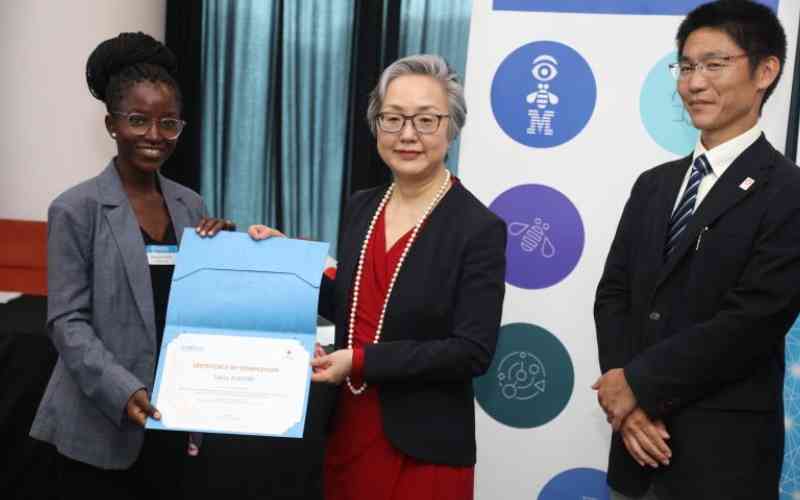
At least 25 women and youth from 24 African countries have undergone digital literacy training facilitated by the United Nations Institute for Training and Research (UNITAR).
Kumamoto Mihoko, the Director of UNITAR Division of Prosperity, emphasized the significance of digital training in enhancing the skills of African women and youth for job creation.
She highlighted the pervasive influence of the internet in our lives and acknowledged that while some have gained access to connectivity, millions still hope for that privilege.
"The internet has become a part of our lives. Although some people have managed to access connectivity, there are millions out there who are hoping that one day they will be privileged," said Mihoko.
As of the end of March this year, a total of Sh146 million has been allocated to support digital skills in various regions. Mihoko expressed the commitment to implementing the project effectively, with the goal of enabling the trained individuals to return to their communities and companies, thereby contributing to their improvement.
Addressing the gender gap in digital literacy, Mihoko stated, "There is much work to be done on gender. Women and youth in the region often report limited access to digital literacy and infrequent use of digital technologies. A third of Africa's population remains unconnected."
Citing UNICEF's 2021 findings that at least 90 per cent of jobs now require some level of digital literacy and skills, Mihoko underscored the accelerated digitization brought about by the Covid-19 pandemic. This shift necessitates an upscaling of skills to meet the evolving demands of the digital landscape.
Mihoko urged the need to dismantle barriers and ensure equal access to opportunities and skills for young women and youth, emphasizing that breaking intergenerational dependence requires addressing the disparities in access to connectivity.
Without regular access to connectivity, women and youth face limitations in accessing essential services such as healthcare, education, and employment, as well as social services. Mihoko emphasized the importance of providing affordable internet connectivity and working towards reducing the cost of connections while developing digital skills, devices, and platforms aligned with the real labour market needs.
Fumihiro Uchikoshi, Second Secretary of Economic Affairs at the Economic Corporation Section of the Japan Embassy in Kenya, highlighted that over 7,000 people from 24 Sub-Saharan countries have undergone training in the past six months.
The Japanese government, through UNITAR, has allocated Sh146 million to enhance digital skills for women and youth in Africa.
Originally targeting 5,000 young girls, the program has expanded to include 2,000 boys. Uchikoshi emphasized the necessity of collaboration with other partners to effectively implement the program, expressing particular concern for gender equality and social issues in Nairobi.
He emphasized the desire to enhance connectivity to facilitate the dissemination of information.
 The Standard Group Plc is a multi-media organization with investments in media
platforms spanning newspaper print
operations, television, radio broadcasting, digital and online services. The
Standard Group is recognized as a
leading multi-media house in Kenya with a key influence in matters of national
and international interest.
The Standard Group Plc is a multi-media organization with investments in media
platforms spanning newspaper print
operations, television, radio broadcasting, digital and online services. The
Standard Group is recognized as a
leading multi-media house in Kenya with a key influence in matters of national
and international interest.

